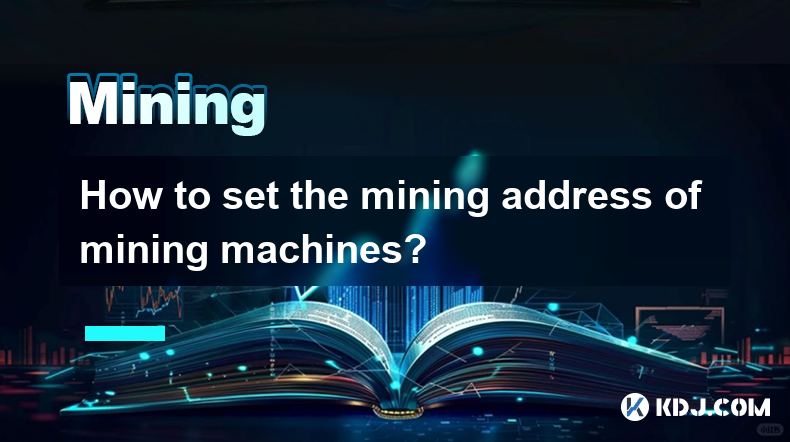-
 Bitcoin
Bitcoin $85,241.3100
0.88% -
 Ethereum
Ethereum $1,597.5221
0.89% -
 Tether USDt
Tether USDt $0.9998
-0.01% -
 XRP
XRP $2.0841
0.61% -
 BNB
BNB $590.1959
0.22% -
 Solana
Solana $139.3082
4.16% -
 USDC
USDC $0.9999
-0.01% -
 Dogecoin
Dogecoin $0.1580
1.99% -
 TRON
TRON $0.2418
-1.29% -
 Cardano
Cardano $0.6272
2.42% -
 UNUS SED LEO
UNUS SED LEO $9.3579
2.37% -
 Chainlink
Chainlink $12.7797
1.30% -
 Avalanche
Avalanche $19.5621
2.86% -
 Stellar
Stellar $0.2467
1.40% -
 Toncoin
Toncoin $2.9798
-0.36% -
 Shiba Inu
Shiba Inu $0.0...01214
1.76% -
 Hedera
Hedera $0.1661
0.58% -
 Sui
Sui $2.1403
1.35% -
 Bitcoin Cash
Bitcoin Cash $337.7260
2.14% -
 Hyperliquid
Hyperliquid $18.0656
8.27% -
 Polkadot
Polkadot $3.7297
0.81% -
 Litecoin
Litecoin $76.0123
0.66% -
 Dai
Dai $0.9999
-0.01% -
 Bitget Token
Bitget Token $4.4640
2.35% -
 Ethena USDe
Ethena USDe $0.9990
-0.01% -
 Pi
Pi $0.6448
5.54% -
 Monero
Monero $215.3607
-1.36% -
 Uniswap
Uniswap $5.2620
1.52% -
 OKB
OKB $50.8127
1.50% -
 Pepe
Pepe $0.0...07190
1.14%
How to set the mining address of mining machines?
Securely mining crypto requires correctly configuring your mining software with your wallet or pool address; verify this setting to prevent losing mined cryptocurrency to incorrect addresses.
Mar 23, 2025 at 09:35 am

Key Points:
- Understanding the difference between mining pool addresses and wallet addresses.
- Identifying your cryptocurrency wallet address.
- Configuring your mining software to use the correct address.
- Verifying your mining address setup.
- Troubleshooting common address configuration issues.
- Security considerations for your mining address.
How to Set the Mining Address of Mining Machines?
Mining cryptocurrency requires directing your mining hardware's output to a specific address where your earned coins will be deposited. This process involves understanding your wallet, choosing a mining pool (optional), and correctly configuring your mining software. Incorrectly setting your mining address can lead to lost earnings, so precision is paramount.
1. Understanding Wallet Addresses and Mining Pool Addresses:
Before configuring your mining machine, you must understand the difference between your personal wallet address and a mining pool address. Your personal wallet address is unique to your cryptocurrency wallet and is where you ultimately want your mined coins to be sent. A mining pool address acts as an intermediary; you send your mined coins to the pool, which then distributes them to you based on your contribution. Many miners use pools to increase the frequency of rewards.
2. Identifying Your Cryptocurrency Wallet Address:
First, you need the receiving address for the cryptocurrency you are mining. This address is generated by your cryptocurrency wallet (e.g., software wallet, hardware wallet, exchange wallet). The process varies slightly depending on your chosen wallet. Usually, you'll find a "receive" or "deposit" option that displays your unique address as a long string of alphanumeric characters. Carefully copy this address; a single typo will result in lost coins.
3. Configuring Your Mining Software:
The exact steps for configuring your mining address depend on the specific mining software you're using (e.g., NiceHash Miner, Claymore's Dual Ethereum Miner, PhoenixMiner). However, most programs require you to input your mining address in a designated field, often labeled as "wallet address," "payment address," or similar.
- For mining pools: You'll enter the pool's address, along with your unique worker name (often assigned by the pool). This worker name helps the pool track your contributions.
- For solo mining: You will enter your personal wallet address directly into the software's configuration. Solo mining is generally only practical for miners with significant hashing power.
4. Verifying Your Mining Address Setup:
After configuring your mining address, it's crucial to verify its accuracy. Most mining software provides a summary or log showing the address it's currently using. Carefully compare this with the address you copied from your wallet to ensure they match exactly. Even a small discrepancy will send your mined coins to the wrong location.
5. Common Address Configuration Issues and Troubleshooting:
- Incorrect address: Double-check for typos. Copy and paste directly from your wallet to minimize errors.
- Pool address format: Ensure you're using the correct format specified by your chosen mining pool.
- Software errors: Check your mining software's logs for error messages. Update your software to the latest version.
- Network connectivity: Ensure your mining machine has a stable internet connection.
6. Security Considerations for Your Mining Address:
Protecting your mining address is paramount. Never share it publicly or with untrusted individuals. Use strong passwords for your wallet and mining software. Regularly update your software to patch security vulnerabilities. Consider using a hardware wallet for enhanced security, especially for storing large amounts of cryptocurrency.
Common Questions:
Q: What happens if I enter the wrong mining address?
A: Your mined cryptocurrency will be sent to the incorrect address, and you will likely lose access to those funds. There is typically no way to recover them.
Q: Can I change my mining address after I've started mining?
A: Yes, you can usually change your mining address. However, any coins already mined before the change will be sent to the old address. You will need to update your mining software with the new address.
Q: What is a mining pool, and why would I use one?
A: A mining pool is a group of miners who combine their computing power to solve cryptographic puzzles. Joining a pool increases your chances of earning rewards more frequently compared to solo mining, which requires significantly more hashing power.
Q: Is solo mining better than pool mining?
A: Solo mining offers the potential for larger rewards but requires substantial hashing power and carries a higher risk of receiving no rewards for extended periods. Pool mining is generally more consistent but offers smaller individual payouts.
Q: How do I choose a mining pool?
A: Consider factors like pool fees, payout frequency, server location (for lower latency), and the pool's overall reputation and hash rate. Research different pools before making a decision.
Q: What if my mining software doesn't have an option for setting a mining address?
A: This is unlikely, but if it happens, check the software's documentation or contact the software's support for assistance. Ensure you are using the correct and updated software.
Q: Are there any fees associated with setting up a mining address?
A: No, setting up your mining address itself doesn't incur any fees. However, mining pools may charge fees on your earnings. These fees vary depending on the chosen pool.
Disclaimer:info@kdj.com
The information provided is not trading advice. kdj.com does not assume any responsibility for any investments made based on the information provided in this article. Cryptocurrencies are highly volatile and it is highly recommended that you invest with caution after thorough research!
If you believe that the content used on this website infringes your copyright, please contact us immediately (info@kdj.com) and we will delete it promptly.
- Renowned Author Robert Kiyosaki Forecasts Bitcoin (BTC) Price Could Skyrocket to $1 Million by 2035
- 2025-04-19 19:30:13
- A Modest Investment of $500 Today Could Potentially Grow into $2 Million by 2026
- 2025-04-19 19:30:13
- Bitcoin (BTC) and Ethereum (ETH) Options Expiry Today: Brace for Volatility
- 2025-04-19 19:25:14
- Ethereum Today Reacts To Base Tweet Frenzy
- 2025-04-19 19:25:14
- Michael Saylor's Bitcoin Playbook
- 2025-04-19 19:20:15
- Bitcoin (BTC) and Ethereum (ETH) ETFs Show Divergent Flows As BTC ETFs Gain 1,147 BTC
- 2025-04-19 19:20:15
Related knowledge

How to judge the stability and reliability of the mining pool?
Apr 19,2025 at 02:08pm
When engaging in cryptocurrency mining, choosing the right mining pool is crucial for maximizing your returns and ensuring a stable mining experience. The stability and reliability of a mining pool can significantly impact your overall success in mining. Here, we will explore the key factors to consider when evaluating the stability and reliability of a...

How to deal with abnormal noise during mining machine operation?
Apr 17,2025 at 01:35am
Mining machines are essential tools for cryptocurrency miners, but they can sometimes produce abnormal noises that may indicate underlying issues. Understanding how to identify and address these noises is crucial for maintaining the efficiency and longevity of your mining equipment. This article will guide you through the process of dealing with abnorma...

How to maintain anonymity when mining?
Apr 17,2025 at 06:01pm
Maintaining anonymity when mining cryptocurrencies is crucial for many miners who wish to protect their privacy and security. This article will guide you through various strategies and tools that can help you achieve a high level of anonymity while engaging in mining activities. Understanding the Importance of Anonymity in MiningAnonymity in the context...

How to automate mining tasks through scripts?
Apr 18,2025 at 01:29pm
In the world of cryptocurrency, mining remains a crucial activity for generating new coins and securing blockchain networks. Automating mining tasks through scripts can significantly enhance efficiency and reduce manual labor. This article delves into the intricacies of automating mining tasks, providing a comprehensive guide on how to achieve this usin...

How to switch mining algorithms in the mining pool?
Apr 18,2025 at 12:00pm
Switching mining algorithms in a mining pool can be a strategic move for miners looking to optimize their mining operations. This process involves several steps and considerations, and understanding how to navigate it can significantly impact a miner's efficiency and profitability. In this article, we will explore the detailed steps required to switch m...

How to avoid reduced income due to network delays when mining?
Apr 19,2025 at 12:14am
Mining cryptocurrencies can be a lucrative endeavor, but it comes with its own set of challenges, one of which is network delays. These delays can significantly impact your mining income by causing you to miss out on block rewards and transaction fees. In this article, we will explore various strategies to mitigate the effects of network delays and ensu...

How to judge the stability and reliability of the mining pool?
Apr 19,2025 at 02:08pm
When engaging in cryptocurrency mining, choosing the right mining pool is crucial for maximizing your returns and ensuring a stable mining experience. The stability and reliability of a mining pool can significantly impact your overall success in mining. Here, we will explore the key factors to consider when evaluating the stability and reliability of a...

How to deal with abnormal noise during mining machine operation?
Apr 17,2025 at 01:35am
Mining machines are essential tools for cryptocurrency miners, but they can sometimes produce abnormal noises that may indicate underlying issues. Understanding how to identify and address these noises is crucial for maintaining the efficiency and longevity of your mining equipment. This article will guide you through the process of dealing with abnorma...

How to maintain anonymity when mining?
Apr 17,2025 at 06:01pm
Maintaining anonymity when mining cryptocurrencies is crucial for many miners who wish to protect their privacy and security. This article will guide you through various strategies and tools that can help you achieve a high level of anonymity while engaging in mining activities. Understanding the Importance of Anonymity in MiningAnonymity in the context...

How to automate mining tasks through scripts?
Apr 18,2025 at 01:29pm
In the world of cryptocurrency, mining remains a crucial activity for generating new coins and securing blockchain networks. Automating mining tasks through scripts can significantly enhance efficiency and reduce manual labor. This article delves into the intricacies of automating mining tasks, providing a comprehensive guide on how to achieve this usin...

How to switch mining algorithms in the mining pool?
Apr 18,2025 at 12:00pm
Switching mining algorithms in a mining pool can be a strategic move for miners looking to optimize their mining operations. This process involves several steps and considerations, and understanding how to navigate it can significantly impact a miner's efficiency and profitability. In this article, we will explore the detailed steps required to switch m...

How to avoid reduced income due to network delays when mining?
Apr 19,2025 at 12:14am
Mining cryptocurrencies can be a lucrative endeavor, but it comes with its own set of challenges, one of which is network delays. These delays can significantly impact your mining income by causing you to miss out on block rewards and transaction fees. In this article, we will explore various strategies to mitigate the effects of network delays and ensu...
See all articles























































































